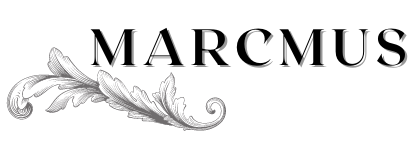
- This event has passed.
MARCMUS project workshop – Music paper and handwriting studies in Portugal (18th and 19th centuries)

Music paper and handwriting studies in Portugal (18th and 19th centuries): the case study of the collection of the Count of Redondo
The MARCMUS project focuses on the virtually unexplored music manuscripts from the collection of the 15th Count of Redondo, now housed at Biblioteca Nacional de Portugal (BNP, National Library of Portugal). A distinguished member of one of the oldest noble families in Portugal, José Luís Gonzaga de Souza Coutinho Castelo-Branco e Menezes (1797-1863) was the most notable music Maecenas in 19th-century Portugal; he was also a composer and a practising musician, especially proficient in the art of singing. In the Count of Redondo’s homes (the Palaces of Santa Marta, in Lisbon, and the Estate of Bom Jardim, in Belas), the more intimate domestic chamber music and the sumptuous religious feasts, where music was paramount, were common occurrences. The contents of this unique music collection seem to reflect the continuous music practice and the unwavering support of musicians and composers, as it is highly representative of Portuguese music from the mid-18th century until the very end of the 19th century. Despite being a recognised powerful and unique research tool, musicological source criticism, particularly paper and handwriting studies, is a much-neglected discipline in Portugal in the period considered (18th and 19th centuries). The characteristics of the collection of the Count of Redondo make it ideal for a case study of source criticism in Portuguese music. The expected outcomes will lay the foundations for a Music Paper and Handwriting Study Centre and thus hasten progress, whilst establishing Portuguese source criticism on a par with international standards. The project aims to systematically record and digitally preserve the watermarks and paper types (the conjunction of the watermark and the number and size of staves drawn by rastra) of the collection’s music manuscripts. It will also record the literary and music handwritings of the copyists and composers involved (preliminary research has shown that the collection possesses a significant number of autographs). The corresponding project site will allow free access to the resulting relational databases (watermarks/paper types and handwritings). The watermark and paper type database will also become available at the Bernstein Project: the Memory of Paper, the largest international project of its kind (in 10 languages) which includes 50 collections and more than 264,000 researchable watermarks (www.memoryofpaper.eu).
This workshop, with the collaboration of some distinguished national and international experts, aims to introduce these neglected disciplines to MARCMUS participants and to all those interested in paper and handwriting studies.
See program here
Registrations open until 1 February here: marcmus.cesem@gmail.com
February 28, 4pm – Session 5 (Zoom):
Joana Paulino (Digital Humanities Lab, IHC), Zuelma Chaves (MARCMUS; CESEM), Sílvia Sequeira (Music Area, National Library of Portugal)
